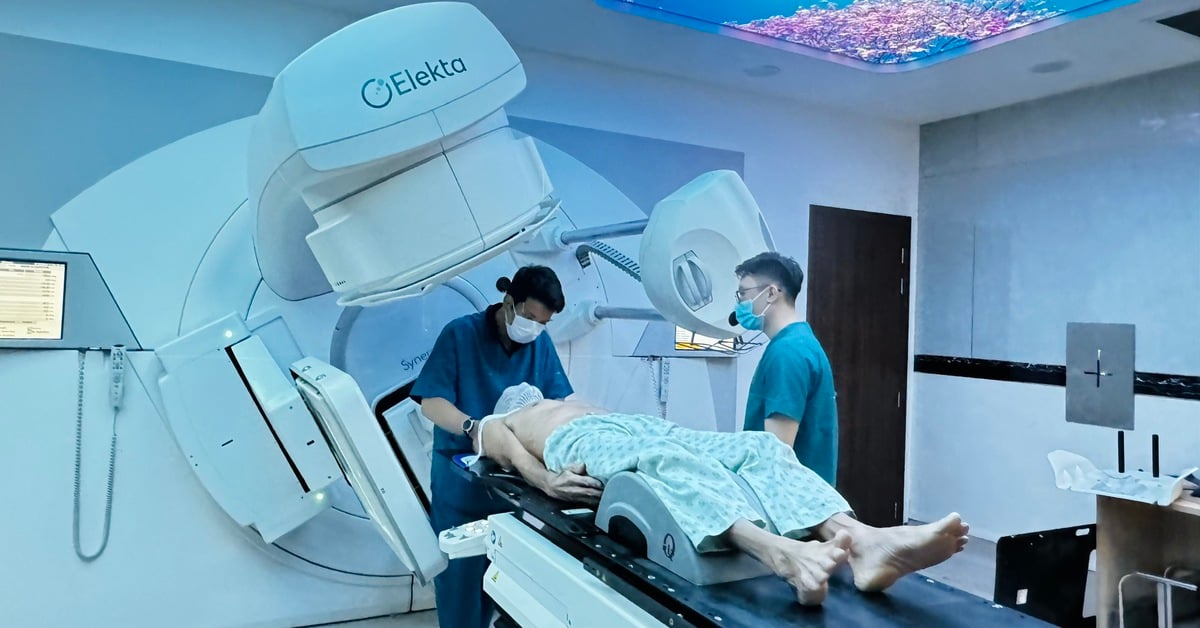But one morning, she was shocked to wake up and feel a sharp pain on the right side of her face. The pain was so intense that it felt like an electric shock every time she moved her facial muscles. She also had difficulty keeping her balance, making it difficult to walk, according to the Daily Mail (UK).
She rushed to the doctor and discovered a large benign tumor in her skull that was pressing on the nerve that controls her facial muscles. The size of the tumor suggested it had been growing for at least 10 years.
After a nine-hour surgery four months later, doctors successfully removed the entire brain tumor without damaging the patient's facial nerve.

The pain was caused by a large benign tumor inside the skull pressing on a nerve.
Five months later, she was allowed to resume light exercise and it took her a year to regain her strength. About 18 months after the surgery, her skull still hurts.
Ms. Vanacker shared her story to raise awareness about brain tumors.
Warning about strange symptoms of brain tumor
Benign brain tumors are noncancerous and do not spread, but they can still be dangerous. They can damage parts of the brain, causing brain dysfunction and disability. In some locations of the brain, benign brain tumors can still be life-threatening.

Warning signs of a brain tumor include headaches, blurred vision, loss of feeling or movement in the limbs, and difficulty with balance.
But there are signs that may surprise you. Brain tumors can cause seizures.
According to the American Society of Clinical Oncology, some seizures can cause changes in the senses: feeling, seeing, smelling, hearing, and even tasting. Or forgetting the names of common objects, not knowing how to use utensils, not recognizing words or numbers. Some people have pain in "unrelated" places such as toothache, facial pain, according to Penn Medicine Hospital (USA).
Other common warning signs include headache, blurred vision, loss of feeling or movement in the limbs, and difficulty with balance.
95% of patients with benign brain tumors survive more than 5 years after being diagnosed, according to the Daily Mail .
Source link


![[Photo] Looking back at the impressive moments of the Vietnamese rescue team in Myanmar](https://vstatic.vietnam.vn/vietnam/resource/IMAGE/2025/4/11/5623ca902a934e19b604c718265249d0)
![[Photo] "Beauties" participate in the parade rehearsal at Bien Hoa airport](https://vstatic.vietnam.vn/vietnam/resource/IMAGE/2025/4/11/155502af3384431e918de0e2e585d13a)



























![[Photo] Summary of parade practice in preparation for the April 30th celebration](https://vstatic.vietnam.vn/vietnam/resource/IMAGE/2025/4/11/78cfee0f2cc045b387ff1a4362b5950f)






























































Comment (0)